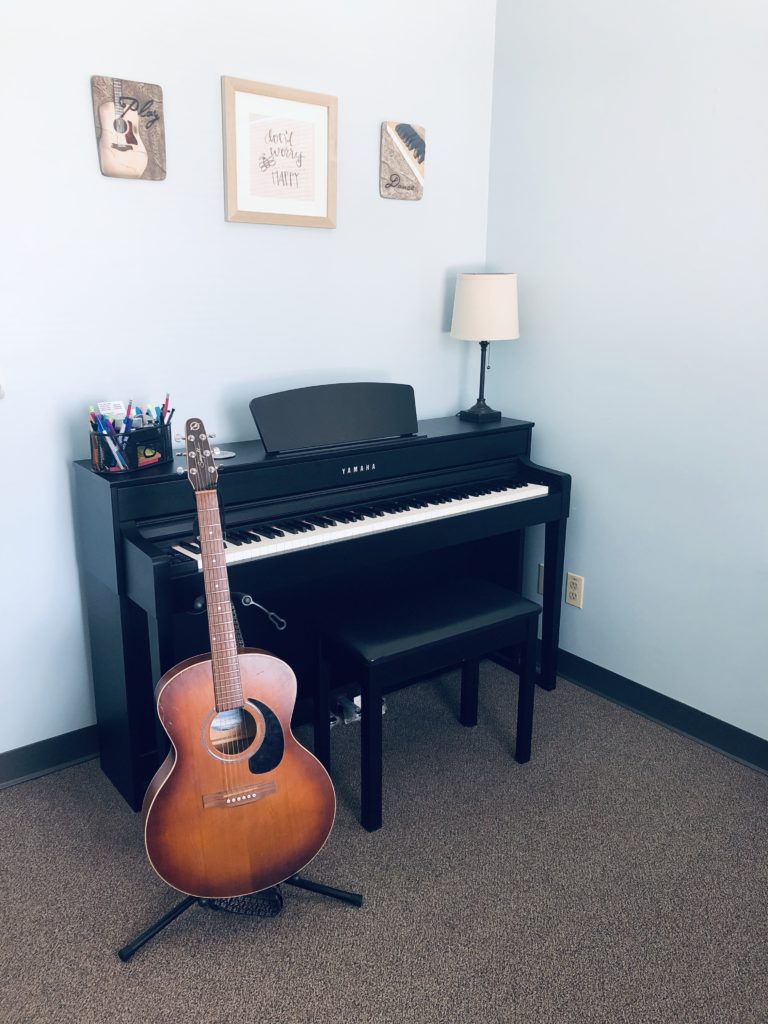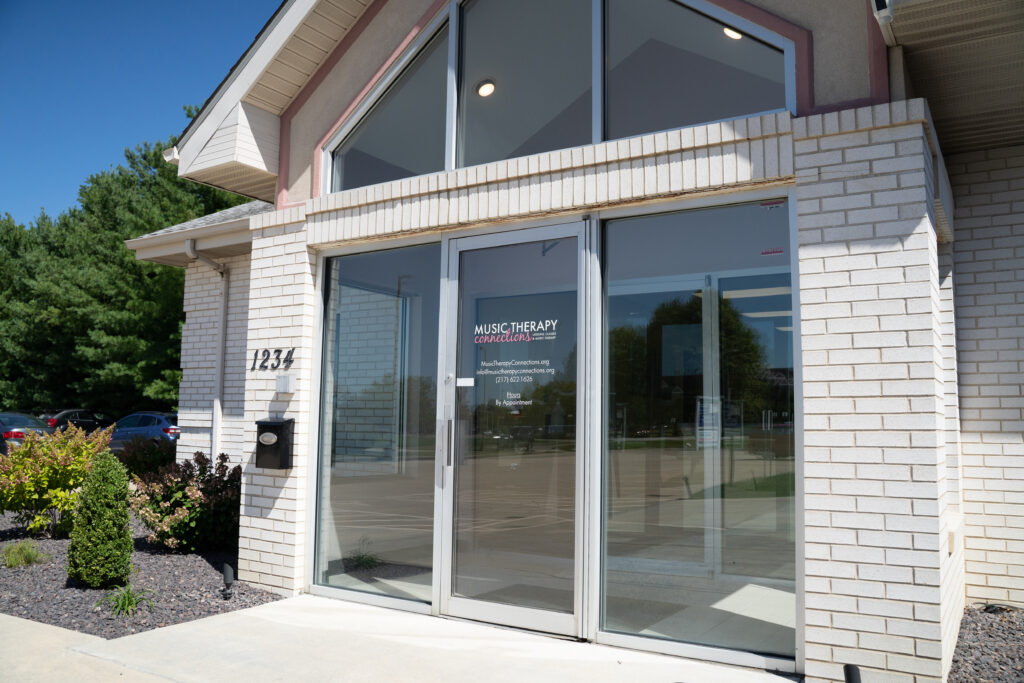
Hello! I hope you have had a wonderful week! This week I have been working a lot on my musical skills. As I was practicing, I reflected on my own musical skills and how important these skills are to music therapists.
When someone hears “Music Therapy” for the first time, two somewhat obvious things probably pop into their head: music and therapy. As music therapists or future music therapists, we learn so much about both musical skills and clinical skills in our education.
Both musical skills and clinical skills are incredibly important in this profession. Since we are therapists, some may place a greater emphasis on the clinical skills aspect, but we can’t forget about our musical skills.
Throughout our education, we take so many classes that play into our musical skills. These include music theory, aural skills, classes on various instruments including guitar, piano, voice, and percussion, and ensembles on our primary instruments. If you think about it, we may even spend more time on our musical skills throughout college than our clinical skills.
Being a musician is HARD. A lot of musicians may be drawn to a certain instrument. For me, that is voice. I’ve spent my whole life singing. Thus, this part of my education came easy to me, but learning new instruments is difficult, especially when you’re a young adult.
Piano has always been a struggle for me. I took piano as a young child, but quit after a few years, as I really preferred my voice lessons. I also never imagined I would enter a field of work where piano skills would be helpful. If there was one thing I could change in my life, I would go back and continue those lessons.
In regards to guitar skills, I had never even touched a guitar until my sophomore year of college. I went through the blisters and calluses, and continue to do so, as a beginner guitar player. Some say that this is one of the easiest instruments to learn, but it sure was difficult for me.
As my first two years of college were jam-packed with the classes previously listed, my musical skills began to develop. It can be rather easy to feel “comfortable” with your musical skills after those first two years; I know I did. However, it’s important to remember that we are always learning and should strive to know more and get better, just like with our clinical skills. Let’s consider the following points:
Music is how we reach our clients.
Sometimes clients see us because nothing else is able to reach them. Music can speak to a client in ways that nothing else can. Not to mention, using client-preferred music builds great rapport between the client and therapist. This strengthens the therapeutic relationship and trust. Music can build connections.
The music needs to enhance the session, not distract from it.
Our musical skills are so important as we use music in each and every session. We want our skills to be functional enough that they engage the client and enhance the session. If the therapist doesn’t know his/her music or is not confident, that distracts from the therapy session. This may result in not achieving, or even preventing the chance in achieving, the clients’ goal(s). Musical skills are important!
Music is what makes us unique.
It’s in the name: Music Therapists. No other profession has the knowledge and skills regarding music and using it effectively in a therapeutic setting like we do. It’s important to not let go of the musical skills that make us so unique.
By no means am I stating that musical skills are more important than clinical skills, or vice versa. Rather, we simply must not forget how important both sets of skills are.
Thank you for reading and have a great rest of your week!
Emma Kovachevich


